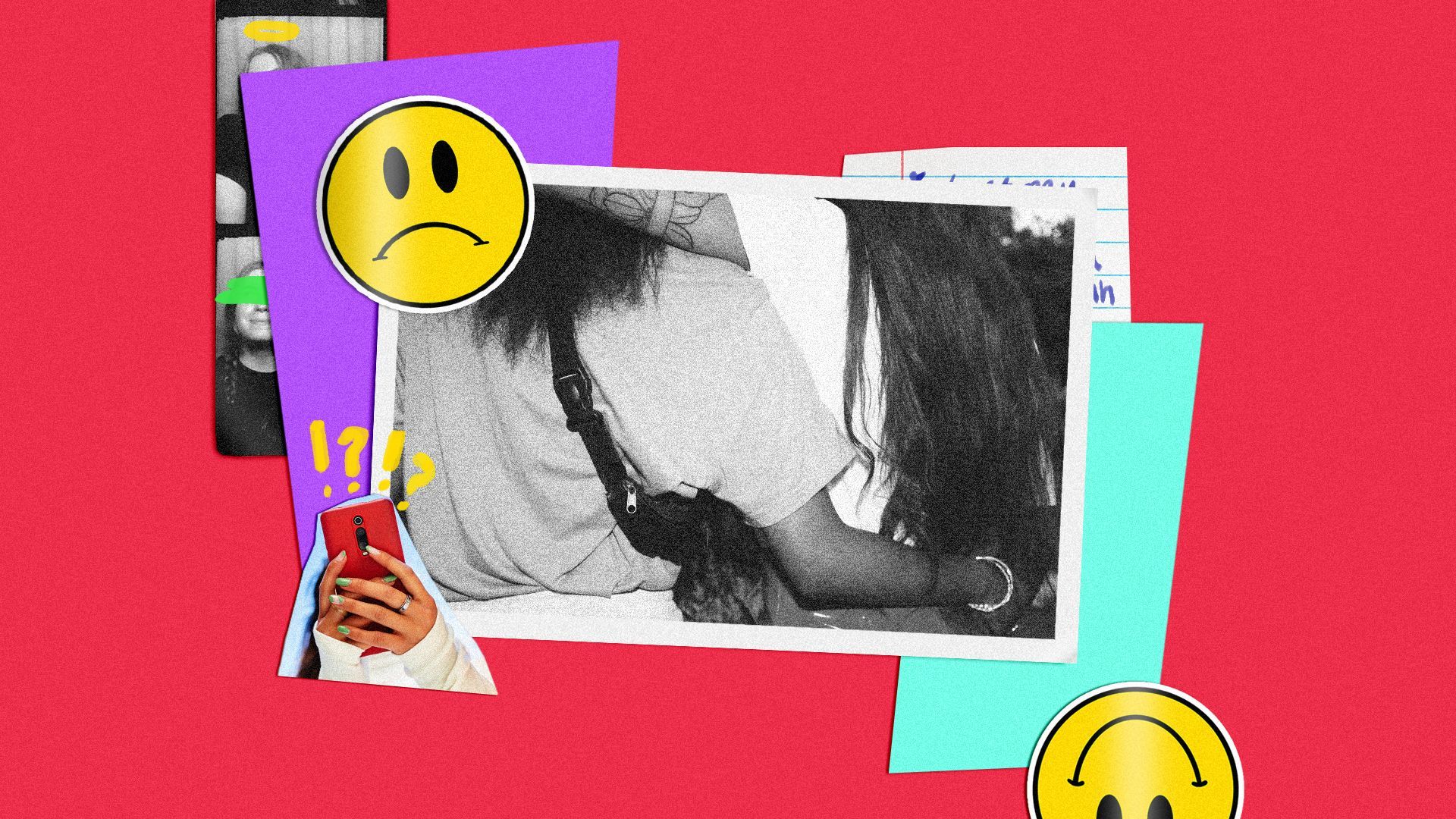
Illustration: Tiffany Herring/Axios
Generation Z is America’s most diverse cohort yet — but they’re united by deep anxieties about the world around them.
Why it matters: A collision of political, economic and social trends has minted a generation in which huge numbers of people struggle to cope with the present and feel even worse about the future.
By the numbers: Gen Z — people roughly between the ages of 12 and 27 —reports the poorest mental health of any generation, according to a recent Gallup and Walton Family Foundation report.
- Just 44% of Gen Zers say they feel prepared for the future.
The big picture: They dodged familiar teen pitfalls — with lower teen pregnancy rates, and lower rates of alcohol use. Instead, they’re grappling with alarming rates of loneliness, depression and suicidal thoughts.
Zoom in: Partly by choice and partly out of necessity during the pandemic, Gen Z socializes online, rather than in person, far more than previous generations. That's not healthy, experts say.
- Spending time with people releases certain chemicals in the brain and boosts our mood. "Those things don't happen in the same way when you're texting," said Bonnie Nagel, a behavioral neuroscientist at Oregon Health & Science University. "And those types of hormones are really important for wellbeing."
- COVID isolation hit Gen Z especially hard. "It was a complete lack of social connectedness during a such a formative time," Nagel said.
"This is the generation that grew up with the internet, and what I'm seeing is a lot of comparison," said Alyssa Mancao, a therapist in Los Angeles with a Gen Z client base.
- She said her clients talk about comparing everything from their physical appearances to their career paths with their peers and influencers online. "There are a lot of feelings of inadequacy."
The state of the world also fuels Gen Z's pessimism.
- An ongoing study at Montclair State University finds that Gen Zers perceive the world as more dangerous than their older counterparts.
- They're more likely to feel anxiety about extreme weather. Active-shooter drills became the norm while they were in school.
- They're entering the workforce loaded with student debt while the cost of housing and other basic needs continues to soar. And AI poses an existential threat to jobs and careers they've only just begun.
"Across the board, my Gen Z clients are overwhelmed with the uncertainty around unemployment and affordable living," said Erica Basso, a therapist with clients across California.
- "Unfortunately most have had to rely on their parents for much longer than previous generations and still feel the pressure to hit major milestones like having kids or owning a home by their age, which is simply not realistic for many of my client's situations."
Reality check: Despite their anxieties, there are several reasons to be optimistic about this generation.
- They are passionate activists: 70% of Gen Z-ers around the world say they're involved in a social or political cause, per Edelman. And social media has given them new platforms to speak out.
- Gen Z's racial and ethnic diversity — in the U.S., the generation is just 52% white — will bring new perspectives to business, politics and pop culture.
"They're conscious of their emotions and have less difficulty expressing their emotions than past generations. They're less repressed overall, which is progress," Basso said.
- "All of my Gen Z clients amaze me with their intelligence, their tolerance, and their ability to stay true to their values," Basso said. "These characteristics, combined, can activate great change in the world."